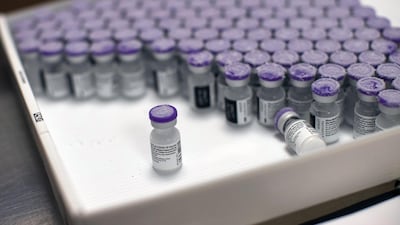It used to be that summits of the G7, a club of seven rich countries, were held in major cities, where the symbols of their cultural and economic might shone brightly. The 80s and 90s saw meetings in London, Venice, Tokyo and Paris. More recently, amid popular frustration with the uneven dividends of globalisation, G7 leaders have preferred to shift their discussions to more reclusive environs. In 2012, then US president Barack Obama moved a G7 summit set to be in Chicago to his country retreat at Camp David at the last minute to avoid protesters. Sleepy towns with a country club atmosphere are now the norm. This year’s summit, to be hosted this weekend by the UK, will take place at a seaside resort in Cornwall.
While the summit’s location scouts have maintained their taste for seclusion, its participants – the leaders of Canada, France, Germany, Italy, Japan, the UK and US, as well as representatives of the EU – are keen to send a message that rejuvenates faith in their leadership on the world stage. The major talking point ahead of this year’s gathering is an expected commitment to set a global minimum tax rate for multinational corporations of 15 per cent. Janet Yellen, the US Treasury Secretary, has called it an "historic" agreement to "end the race to the bottom in corporate taxation and ensure fairness for the middle class and working people in the US around the world".
The US is central in leading the charge not only because it is the breeding ground for so many tax-avoiding corporate behemoths, but also because its new president, Joe Biden, has a broader message to send. Weeks after his inauguration this January, he declared loudly and proudly that “America is back”. What he meant was that a vision for the world that America pioneered – one of multilateralism, rules-based order, justice and human rights – is back.
Mr Biden’s statement has since garnered him a great deal of support from many of America’s traditional allies, many of whom were shellshocked by former president Donald Trump’s more fractious style. The G7’s outcomes will be a key moment for Mr Biden to make good on the promises that brought him all of that goodwill.
Doing so will require more than a new corporate tax regime – countries are racing to hoard more than just corporate profits. As many, particularly those in the developing world, continue to suffer the effects of the Covid-19 pandemic, countries with more advanced vaccination programmes, like the US, will need to come up with an effective and deliverable way to start sharing.
Five of the G7 countries have already committed to donating a specific amount of vaccine doses to Covax, a global vaccine distribution scheme. But even if the remaining two – Canada and the UK – make similar commitments, it will not be enough. Donating a large number of leftover doses in one go would overload already-weak healthcare systems in poorer countries, Unicef has warned. The G7 and the rest of the developed world must instead ensure a steady supply of donations and support for vaccine delivery. The first shipments cannot be dispatched early enough.
A global minimum corporate tax rate is no small achievement for this year’s G7 summit. But it is not the greatest possible outcome. Carving a clearer path out of the Covid-19 pandemic for everyone would be a truer testament to G7 leadership, and to the restoration of a more equitable, multilateralist world.



